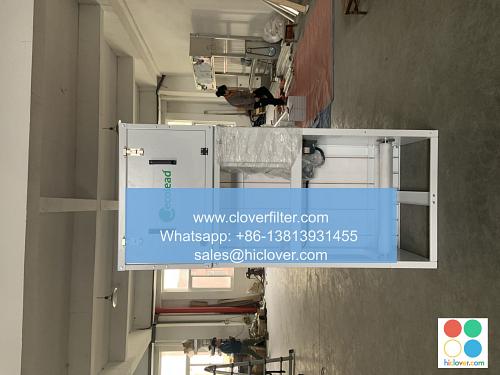The Importance of Air Filtration in University Clean Labs

University clean labs are controlled environments that require precise conditions to maintain the integrity of experiments and research. One crucial aspect of these labs is air filtration, which plays a vital role in preventing contamination and ensuring the accuracy of results. In this article, we will explore the importance of air filtration in university clean labs, highlighting various application areas and key benefits.
What is Air Filtration and Why is it Necessary?
Air filtration is the process of removing particulate matter, gases, and microorganisms from the air to create a clean and safe environment. In university clean labs, air filtration is necessary to prevent cross-contamination of experiments, protect sensitive equipment, and maintain optimal indoor air quality. This is particularly important in labs where biological agents, chemicals, and nanomaterials are used, as these substances can be hazardous to human health and the environment.
Application Areas of Air Filtration in University Clean Labs
Air filtration is essential in various application areas within university clean labs, including:
* Biosafety laboratories: where biological agents are handled, and airborne pathogens need to be controlled.
* Chemical laboratories: where hazardous chemicals are used, and volatile organic compounds (VOCs) need to be removed.
* Physical laboratories: where nanomaterials and other particles are studied, and airborne particles need to be controlled.
* Microelectronics laboratories: where semiconductors and other sensitive equipment are used, and airborne particles can cause damage.
Key Benefits of Air Filtration in University Clean Labs
The key benefits of air filtration in university clean labs include:
* Prevention of contamination: by removing particulate matter and microorganisms from the air.
* Protection of equipment: by controlling airborne particles and gases that can damage sensitive equipment.
* Improvement of indoor air quality: by removing hazardous chemicals and VOCs from the air.
* Enhancement of research quality: by maintaining optimal conditions for experiments and research.
Conclusion
In conclusion, air filtration is a critical component of university clean labs, playing a vital role in preventing contamination, protecting equipment, and improving indoor air quality. By understanding the importance of air filtration and its various application areas, universities can ensure the integrity of their research and maintain a safe and healthy environment for students, staff, and faculty. As research and technology continue to evolve, the importance of air filtration in university clean labs will only continue to grow, highlighting the need for effective air filtration systems and regular maintenance to ensure the accuracy and reliability of research results.

